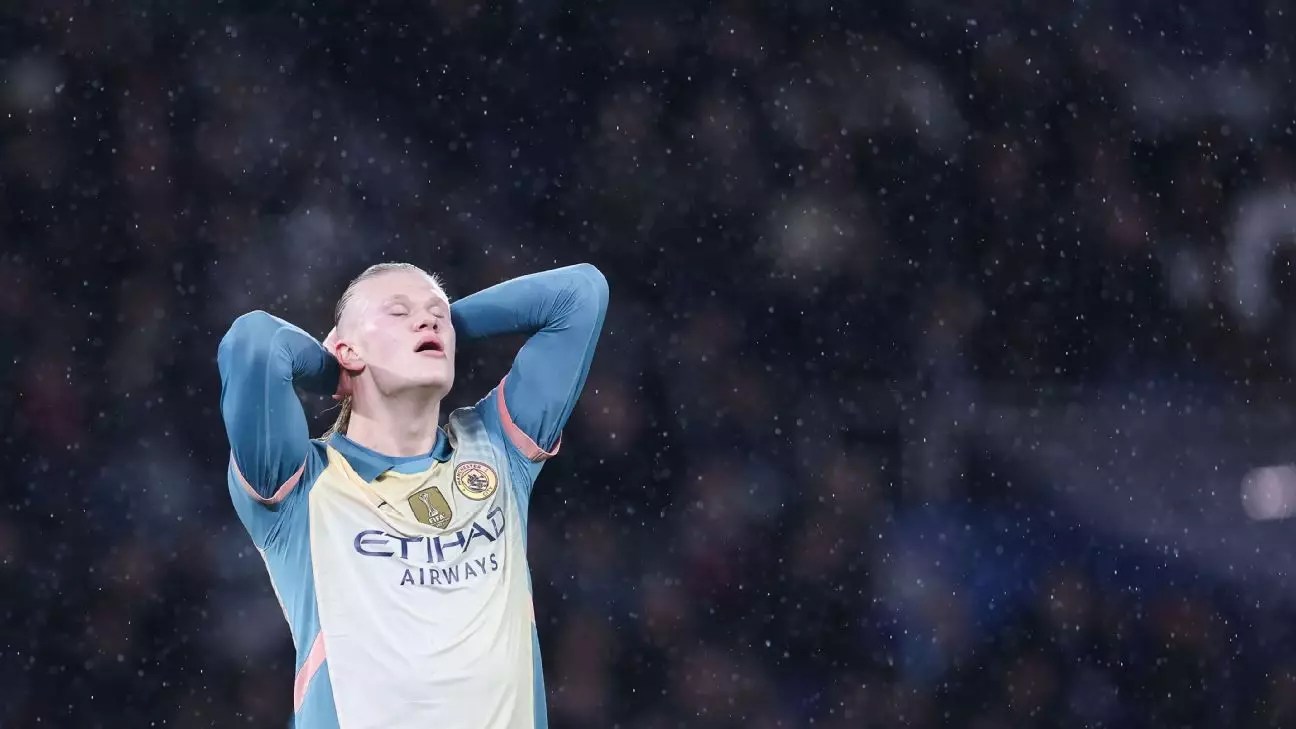In a match that many will remember for its unpredictability, Paris Saint-Germain (PSG) overturned a 2-0 deficit against Manchester City to claim a magnificent 4-2 victory in the Champions League. The match unfolded at the iconic Parc des Princes, where the power dynamics shifted dramatically within one half. Initially, City appeared to be in firm control, thanks to goals from Jack Grealish and Erling Haaland just after the start of the second half. However, only moments later, PSG struck back to equalize, and ultimately turned the game around in a stunning display of resilience and tactical intelligence.
This result not only revitalized PSG’s hopes for progressing in the Champions League but also cast City’s ambitions into jeopardy. Pep Guardiola’s team now faces a precarious situation, needing to win against Club Brugge to have any hope of advancing from their group. The implications of this loss cannot be underestimated, particularly as City might find themselves on the outskirts of a competition they were once keenly focused on winning.
For PSG, this victory symbolized a notable moment of resurgence. They have been frequently criticized for their inability to perform under pressure in crucial European fixtures, often squandering leads or faltering in the face of adversity. Yet, this particular clash demonstrated a refreshing spirit in the squad. Despite the absence of superstar players like Neymar and Lionel Messi, the young talents in the team displayed exceptional courage and skill. Ousmane Dembélé and Bradley Barcola were pivotal in igniting the revival, showcasing how vital youthful exuberance can be in high-stakes situations.
What stood out was not just the technical skill displayed by PSG, but their sheer tenacity. Coming back from two goals down could have easily shattered their confidence, yet they embraced the challenge and responded with relentless determination. With an upcoming match against VfB Stuttgart, the Parisians must harness this momentum. The performance against City could very well serve as the turning point in their Champions League campaign.
On the contrary, Manchester City’s performance raises serious questions about their current form and mental fortitude. This encounter highlighted a concerning pattern—the ninth occasion this season where they squandered a winning position. Guardiola’s side seemed to succumb to a lapse of concentration, failing to match PSG’s revitalized energy and enthusiasm, particularly in the wake of their initial lead.
The substitution of key defender Rúben Dias, who was already on a yellow card, appears to have set off a chain reaction within the squad that led to the unraveling of their defense. The team lacked critical leadership and failed to regain their composure following the equalizing goals from PSG. With Rico Lewis and Matheus Nunes struggling to impose themselves defensively, the cracks in City’s setup became increasingly apparent.
Guardiola has previously been seen as a tactical genius, yet this match may serve as a reminder that football is as much about mental resilience as it is about strategy. The once-formidable City side now finds themselves defensively vulnerable and struggling to replicate their dominance from just a season ago.
The managerial clash between Pep Guardiola and Luis Enrique lived up to its billing, with both teams showcasing tactical acumen during the first half. The first 45 minutes were characterized by tight defensive lines and strategic pressing, maintaining a stalemate that hinted at a high-stakes tactical battle. However, the second half evolved into a thrilling display of attacking football, resulting in six goals and relentless pressure from both sides.
While Haaland managed to score, his inability to impact the game beyond his goal left questions about his overall contribution. Although he remains an exceptional striker, the narrative poses an intriguing point: Can a player’s individual brilliance compensate for a lack of teamwork and support? The answer seems to lean toward the necessity for collaborative effort on the pitch, alongside individual prowess.
With PSG now in contention for qualification, their next match will serve as a critical test of their character and resolve. Meanwhile, City finds themselves grappling with not only the need to secure a victory against Club Brugge but also a need to restore their self-belief and positional security in the Champions League.
What fans witnessed in Paris was more than just a match result; it was a narrative of emerging talents challenging established giants, of strategic shifts leading to unforeseen outcomes, and of a sport inherently filled with the spirit of resilience. As both teams gear up for their next crucial encounters, the ramifications of this match will undoubtedly echo in their future performances, shaping their paths in European football for seasons to come.


Leave a Reply